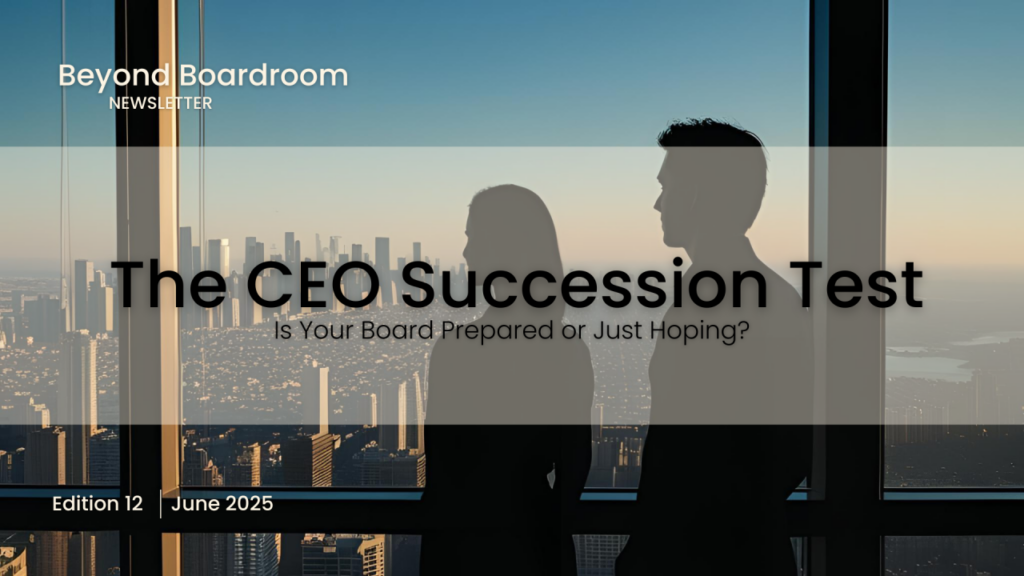Recognition matters when it confirms that a set of principles work in practice. When The Sunday Times named Beyond Governance among the UK’s Best Places to Work, the announcement validated what our own employee feedback had already signalled. More importantly, it reopened a conversation about how governance influences the lived experience of everyone in an organisation.

Governance, in plain terms, is the system by which decisions are made, accountability is held, and culture is reinforced. It lacks the sparkle of free lunch schemes and the immediacy of headline bonuses, yet it is the element that allows all other initiatives to take root. Without governance, perks become little more than short-term fixes; its presence turns them into catalysts.
Most leadership teams face three intertwined challenges: retaining talent, sustaining wellbeing, and maintaining performance. Good governance offers overlooked levers for each. It provides clarity that reduces friction, inclusion that feeds innovation, and learning loops that keep progress honest. Ignore those levers and you rely on goodwill; use them and you build resilience (Koeswayo et al., 2024).
Three principles that shape strong workplace culture
- Clarity fosters confidence Employees thrive when they understand how decisions are made, what is expected, and where responsibility lies. Governance that is transparent and well-communicated builds clarity—helping people focus their energy on meaningful work rather than navigating uncertainty.
- Inclusion drives better thinking Inclusive governance ensures a broader range of perspectives feed into how organisations operate. This isn’t about committee size, instead, it’s about valuing voice, creating space for difference, and embedding fairness into the way decisions unfold. Where inclusion is active, innovation follows.
- Learning strengthens resilience Organisations that adapt well tend to treat learning as a constant, not a correction. Governance can reinforce learning by encouraging reflection, capturing insight, and linking everyday operations with long-term purpose.
These principles are not complex but they do require intention. Put into practice, they become part of a system that supports people, improves performance, and sustains trust over time.
Leadership through an empathetic lens
Empathy in leadership is disciplined curiosity about other people’s realities. It shows up when senior teams share early financial scenarios with staff and invite challenge, or when policy reviews begin with questions about frontline experience before legal wording. These behaviours turn governance from a control mechanism into a trust builder. Trust then accelerates decision making and underpins engagement (De Neve, Kaats & Ward, 2024) ; (Edmondson & Bransby, 2023).
A short assessment for your organisation
- Does every employee understand how their work links to purpose?
- Are values consistently reflected in day-to-day decisions, not just policy documents?
- Is feedback documented, revisited, and closed with visible action?
- Do people feel safe challenging decisions, and confident they’ll be heard?
- Is there a clear line of sight between strategy, operations, and culture?
If the answers are unclear, governance is the place to start.
Final reflection
At its best, governance is not a matter of compliance or committees. It is how values take shape in decisions, behaviours, and culture. It enables clarity, builds trust, and gives people the conditions they need to thrive. Wherever you sit in an organisation, whether you lead, manage, or contribute, there is always space to strengthen how things are done, not just what gets done.
I want to thank every colleague who questions assumptions, tests ideas, and supports peers. You prove daily that governance is a living practice, not a document.
Readers who wish to exchange ideas—or challenge ours—are invited to comment or connect.
Good governance grows through open dialogue; let us keep the conversation moving.
Until next time,
Erika.


